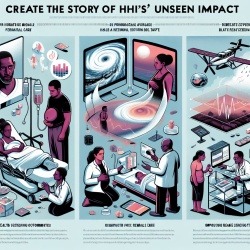Pediatric refractory epilepsy presents a significant challenge due to its broad phenotypic spectrum and genetic heterogeneity. Recent advancements in next-generation sequencing (NGS) have paved the way for better understanding of the genetic underpinnings of this condition. A pivotal study titled "Novel and de novo mutations in pediatric refractory epilepsy" sheds light on these advancements and offers valuable insights for practitioners.
The Role of Genetic Mutations
The study analyzed a cohort of 172 patients with refractory epilepsy, identifying 43 pathogenic or likely pathogenic variants in 40 patients. Notably, 74.4% of these mutations were de novo, and 60.5% were novel. The research highlights the prevalence of mutations in ion channel genes, particularly the SCN1A gene, which is frequently associated with Dravet syndrome.
Implications for Practitioners
The findings from this study emphasize the importance of genetic testing in diagnosing and managing pediatric epilepsy. Practitioners can leverage this information to:
- Enhance Diagnostic Accuracy: By identifying specific genetic mutations, practitioners can provide more accurate diagnoses, which is crucial for tailoring treatment plans.
- Inform Treatment Strategies: Understanding the genetic basis of a patient's epilepsy can guide medication choices and avoid treatments that may exacerbate seizures.
- Support Family Counseling: Genetic insights can aid in counseling families about potential hereditary risks and inform reproductive planning.
The Path Forward
This research serves as a starting point for further investigations into the molecular pathophysiology of pediatric epilepsy. Practitioners are encouraged to stay informed about ongoing research and consider participating in studies that explore new therapeutic interventions based on genetic findings.
Novel and de novo mutations in pediatric refractory epilepsy
The integration of genetic testing into clinical practice represents a significant advancement in the management of pediatric epilepsy. As our understanding of genetic mutations expands, practitioners will be better equipped to offer personalized care that improves outcomes for young patients with this challenging condition.










